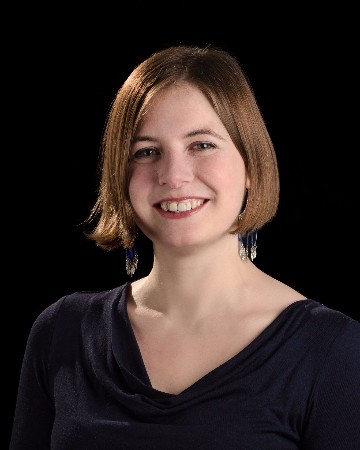NEC learner Julia is keen to challenge the widely held view that young people educated at home lack the resilience built up by those who have been part of a school community. In today’s NEC Blog, we are sharing her story. We are also currently working on a new guide to support home educating families to be published later in the year — keep an eye on our website for updates!
In 2016, at the age of 30, Julia Wix returned to Cambridge after travelling the world as an employee of travel and accommodation site Booking.com. The online company works with over one million hotels around the world. Her first job with the Dutch company was in a call centre in the UK, helping customers dissatisfied with their online experience.
Later, based in the company’s Amsterdam headquarters, she got to grips with analysing training needs, designing wikis (a website or database developed collaboratively by a community of users), managing training workshops and hosting webinars. She ending up as a global training specialist designing development programmes for the company’s employees across Europe, the USA and the Far East.
A desire to return to the UK led to her current role, at Cambridge Network, a not-for-profit membership organisation established 20 years ago. One of her key projects there is the School for Scale-Ups, a skills programme for leaders of rapidly growing businesses such as computer programming innovator Raspberry Pi. Although she was recruited for her training expertise, the organisation offers employees the variety that is one of the hallmarks of working in a small, locally focussed team. Julia might be helping a growing business designing a skills training programme one day and hosting a networking event for local high-tech businesses the next.
Globe-trotting hasn’t just been a feature of Julia’s working life. It had a starring role in her teenage years too. Her father was offered a six-month contract in Belgium and the family went to live there. The six months became several years and a flexible solution was needed for Julia’s schooling. When Julia left formal education at the age of 15, her parents turned to home education for their academically able and ambitious daughter. They found NEC through home education connections and an internet search.
The freedom to learn as she chose, liberated from the constraints of a classroom and the demands of peer pressure, suited Julia down to the ground. She describes herself as self-taught in GCSE maths, and A level classical civilisation, government and politics, French, and English language and literature. She studied and took exams in all five subjects through NEC. Her grades won her a place to study for a BA in Classical & Archaeological Studies with French at the University of Kent. As well as pursuing her passion for ancient Persia in the university library, she spent at year working in a high school in Quebec teaching
English as a foreign language for the British Council, improving her French, learning how she learnt best and learning how to teach others.
Despite having been diagnosed with dyslexia shortly before going to university, Julia was awarded a first class honours degree and in 2010 went on to study for a Masters in Ancient History at King’s College London, achieving a merit.
When she looks back on her childhood, Julia sees her impassioned watching of historical documentaries, and her enthusiasm for visits to museums, stately homes and heritage sites as early signs of the direction her academic interests would eventually take.
Julia is keen to challenge the widely held view that young people educated at home lack the resilience built up by those who have been part of a school community. She believes that people who have been home schooled enter adult life with the confidence that comes from knowing they have succeeded in doing something differently. What’s more, home education gives young people a wide range of skills, including managing their time and managing their money, that prepare them for adult life. She cites the home educated American actress and internet star Felicia Day, who describes her experience of home education in her book ‘You’re never weird on the internet (almost)’.
‘Classical civilisation A level wasn’t offered by the last school I went to,’ says Julia. It’s down to NEC that I was able to go to university, and that I studied the subject I have loved since being a child. Flexibility of subject choice is one of the big benefits of studying for exams through distance learning. I’m sure my life would have taken a very different course without NEC.’


Add a new comment
Current comments: 0